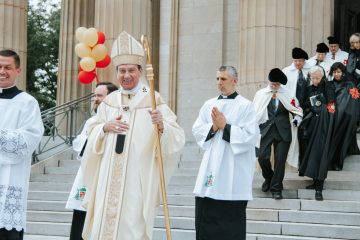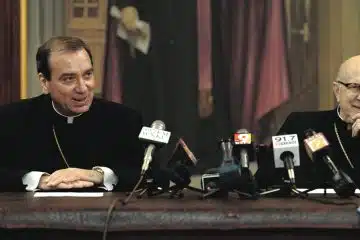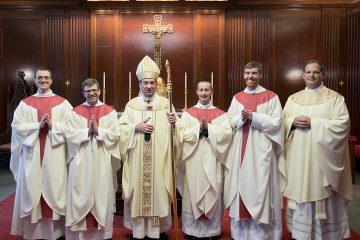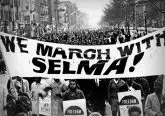BREAKING: Supreme Court sides with web designer opposed to same-sex marriage
Denver, Colo., Jun 30, 2023 / 08:50 am
The U.S. Supreme Court has ruled that the First Amendment’s free speech clause protects a Colorado web designer who feared she would be prosecuted under state anti-discrimination law for her faith-based objections to designing websites that promote same-sex marriage or same-sex weddings.
Lorie Smith, owner of the graphic and web design studio 303 Creative LLC, filed the legal challenge. It was not a response to government action; rather, it was a pre-enforcement challenge intended to prevent the use of the law against her.
Colorado’s Anti-Discrimination Act includes sexual orientation and gender identity as protected classes. The question before the court was whether compelling an artist to speak or stay silent violates the First Amendment’s free speech clause. It did not take up the question of whether it is a religious freedom violation.
“In this case, Colorado seeks to force an individual to speak in ways that align with its views but defy her conscience about a matter of major significance,” Justice Neil Gorsuch said in the 6-3 decision. “But, as this court has long held, the opportunity to think for ourselves and to express those thoughts freely is among our most cherished liberties and part of what keeps our republic strong.
“Of course, abiding by the Constitution’s commitment to the freedom of speech means all of us will encounter ideas we consider ‘unattractive,’ ‘misguided,’ or even ‘hurtful,’ but tolerance, not coercion, is our nation’s answer. The First Amendment envisions the United States as a rich and complex place where all persons are free to think and speak as they wish, not as the government demands.”
Smith was represented by the Alliance Defending Freedom (ADF) legal group, and her attorneys argued that state law affects creative professionals who have religious or moral concerns about creating content that violates their beliefs.
ADF characterized the decision as a “landmark” victory.
“More than just a win for Lorie Smith, this is a sweeping free speech victory for every American,” the group said on Twitter Friday.
Gorsuch’s decision in the case known as 303 Creative v. Elenis invoked several Supreme Court precedents. Students are protected from being compelled to salute the American flag and say the Pledge of Allegiance; a St. Patrick’s Day parade in Boston could not be forced to include a gay, lesbian, and bisexual group; and the Boy Scouts could not be forced to include a gay man as a scout leader.
Justice Sonia Sotomayor authored a dissenting opinion, joined by Justices Elena Kagan and Ketanji Brown Jackson.
“Today, the court, for the first time in its history, grants a business open to the public a constitutional right to refuse to serve members of a protected class,” she objected. “The law in question targets conduct, not speech, for regulation, and the act of discrimination has never constituted protected expression under the First Amendment.”
Sotomayor said the decision had consequences beyond questions of sexual orientation and gender identity and would allow the exclusion of other groups from many services.
Smith told CNA in December 2022, “I serve everyone, including those who identify as LGBT. I love to custom create and will work with anyone — there are simply some messages I can’t create regardless of who asks me.” She said her case is about freedom of speech for all artists.
“After I started my own design studio, I wanted to expand my portfolio to custom-create art and websites to tell stories about weddings, but Colorado made it clear I wasn’t welcome in that space.”
She said she challenged the law because she didn’t want “to be punished for saying what I believe.”
“Colorado officials are censoring my speech and forcing me to speak messages about marriage that are inconsistent with my beliefs — the core of who I am.”
The U.S. Conference of Catholic Bishops was among the groups that filed amicus briefs with the U.S. Supreme Court on behalf of Smith.
In July 2021, A panel of the U.S. Court of Appeals for the Tenth Circuit ruled against Smith 2-1, stating that Colorado had an interest in combating discrimination.
The panel agreed that the Colorado law forced Smith to create websites and speech that she “would otherwise refuse” and created a “substantial risk” of removing “certain ideas or viewpoints from the public dialogue,” including Smith’s beliefs about marriage. However, it ruled in favor of the law, in part on the grounds that she creates “custom and unique” expressions.
The 303 Creative case challenged the same Colorado law that brought Lakewood, Colorado, baker Jack Phillips and his business Masterpiece Cakeshop to the U.S. Supreme Court after he declined to bake a wedding cake for a same-sex wedding.
After the couple filed a complaint, the Colorado Civil Rights Commission ordered Phillips and his staff to undergo anti-discrimination training and to submit quarterly reports on how he is changing company policies. He had to cease making wedding cakes to continue operating his business according to his conscience while not running afoul of the law.
He filed a challenge to the law, also assisted by Alliance Defending Freedom. In June 2018, the U.S. Supreme Court ruled that the Colorado civil rights commission had violated Phillips’ rights. Its 7-2 opinion said the commission “showed elements of a clear and impermissible hostility toward the sincere religious beliefs motivating his objection.”
Phillips is now challenging a lawsuit from an attorney who identifies as a transgender woman and says that Phillips illegally refused to bake a cake celebrating the attorney’s purported gender transition. The cake’s design was pink with blue frosting.
In January, the Colorado Court of Appeals ruled against Phillips’ challenge. The court said the cake design was not inherently expressive of an explicit message that could be attributed to the baker. It said the anti-discrimination law does not violate business owners’ right to practice or express their religion.
Phillips said his cakes are a form of speech and plans to appeal.













